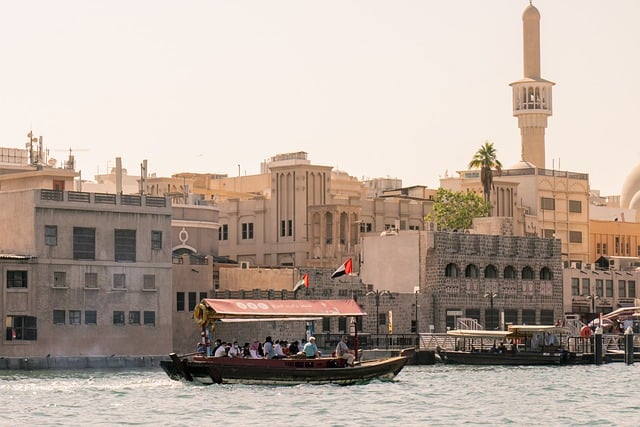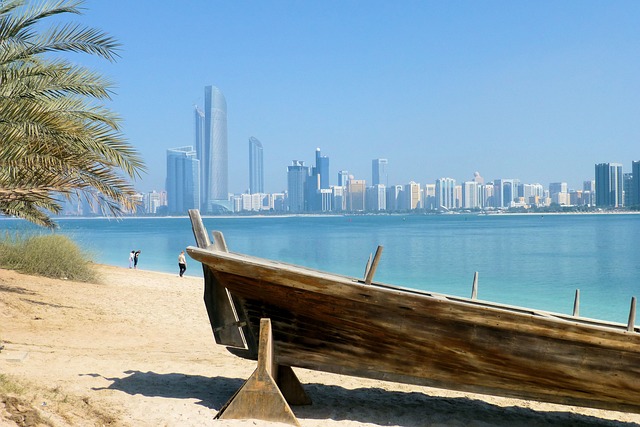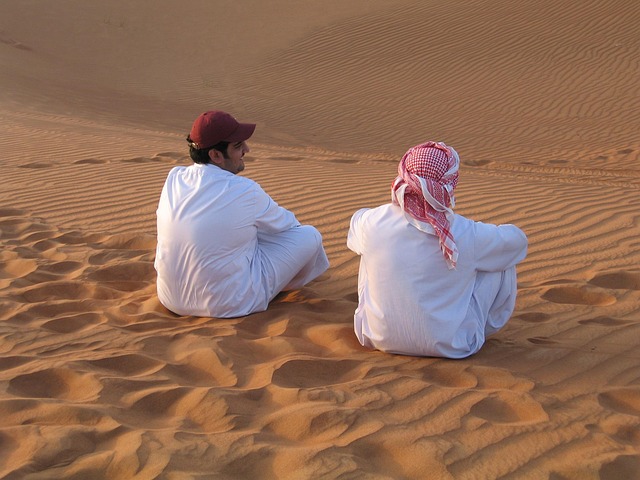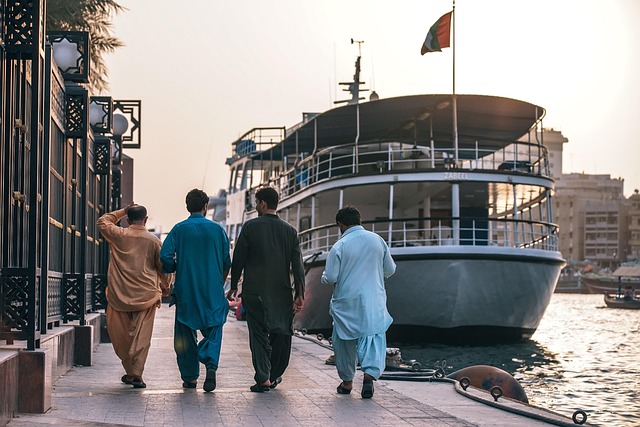Eco-tourism in Hatta Dubai offers a sustainable way to explore natural reserves, benefiting both the environment and local communities. These tours protect habitats, support conservation efforts, educate about biodiversity and climate change, and promote long-term stewardship of Earth's treasures. The Hatta Dubai Tour is a prime example of responsible tourism, combining conservation with eco-friendly adventures. It showcases Dubai's commitment to preserving biodiversity through exploration of lush mountains and valleys. By choosing tour operators committed to sustainable practices, packing light, and following guidelines, travelers can minimize their impact on delicate ecosystems while contributing to preservation efforts. The future of eco-tourism is promising with conservation-focused tours and technological innovations enhancing experiences.
Discover the world through eco-tourism with nature reserves and conservation tours. This article explores sustainable travel, focusing on the role of protected areas in preserving local ecosystems. We delve into the unique offerings of places like the Hatta Dubai Tour, showcasing how eco-friendly practices can revolutionize travel. Learn about the benefits for communities and wildlife, plus essential tips for planning your responsible trip. Uncover the future trends shaping conservation travel and embark on a journey that respects and protects our planet’s wonders.
- Understanding Eco-Tourism: A Sustainable Approach to Nature Appreciation
- The Role of Nature Reserves in Conserving Local Ecosystems
- Hatta Dubai Tour: Exploring a Model for Eco-Friendly Travel
- Unique Attractions of Nature Conservation Tours
- Benefits of Eco-Tourism for Local Communities and Wildlife
- Planning Your Eco-Tour: Tips for a Responsible Visit
- The Future of Eco-Tourism: Trends and Innovations in Conservation Travel
Understanding Eco-Tourism: A Sustainable Approach to Nature Appreciation

Eco-tourism is a sustainable and responsible way to explore nature reserves and conservation areas, ensuring that the environment and local communities benefit from your visit. When you embark on a hatta Dubai tour focused on eco-tourism, you contribute to the preservation of delicate ecosystems while enjoying breathtaking landscapes and wildlife encounters. This approach goes beyond traditional tourism by prioritizing environmental and cultural conservation.
By engaging in eco-tourism activities, visitors can learn about the importance of habitat protection, support local conservation efforts, and minimize their ecological footprint. These tours often include educational components that raise awareness about biodiversity, climate change impacts, and sustainable practices. Such initiatives foster a deeper connection with nature and promote long-term stewardship of our planet’s treasures.
The Role of Nature Reserves in Conserving Local Ecosystems

Nature reserves play a pivotal role in conserving local ecosystems, providing safe havens for diverse plant and animal species. In the case of Hatta Dubai Tour, these reserves offer a unique opportunity to explore and appreciate the region’s rich biodiversity while contributing to conservation efforts. By setting aside protected areas, habitats are preserved, allowing species to thrive and ensuring ecological balance.
Hatta Dubai Tour focuses on promoting sustainable practices, educating visitors about the importance of conservation, and fostering a deeper connection with nature. These tours often involve guided walks, birdwatching, and wildlife photography, all while minimizing environmental impact. By engaging in eco-tourism activities, visitors play an active part in supporting conservation initiatives, ultimately helping to protect these precious ecosystems for future generations.
Hatta Dubai Tour: Exploring a Model for Eco-Friendly Travel

The Hatta Dubai Tour stands as a shining example of how nature reserves and conservation efforts can be seamlessly integrated with eco-friendly travel experiences. This unique offering from Dubai showcases their commitment to preserving the region’s rich biodiversity while providing visitors with an unforgettable adventure. The tour takes participants through lush mountains, pristine valleys, and diverse ecosystems, all while promoting sustainable practices.
By emphasizing responsible tourism, the Hatta Dubai Tour ensures that every visitor contributes positively to conservation efforts. It encourages minimal impact on the environment, educates travelers about local flora and fauna, and promotes respect for natural resources. This model approach not only benefits the region’s ecological balance but also offers a refreshing alternative for those seeking meaningful travel experiences in harmony with nature.
Unique Attractions of Nature Conservation Tours

Nature conservation tours offer a unique opportunity to explore and appreciate the intricate beauty of eco-systems, making them a standout choice for travellers seeking an authentic experience. In the case of Hatta Dubai Tour, visitors can immerse themselves in the region’s diverse landscapes, from lush mountains to arid deserts, while learning about the local flora and fauna. These tours often include guided walks through protected areas, allowing guests to witness rare species and gain insights into conservation efforts.
What sets these tours apart is their focus on sustainability and responsible tourism. Conservationists ensure that visitor activities have minimal environmental impact, fostering a deeper connection with nature. Guests contribute directly to preservation initiatives, supporting local communities and safeguarding the region’s natural heritage. Whether it’s tracking animals in their natural habitat or participating in reforestation projects, these experiences leave a lasting impression, encouraging visitors to become advocates for eco-preservation.
Benefits of Eco-Tourism for Local Communities and Wildlife

Eco-tourism offers a multitude of benefits for both local communities and wildlife in nature reserves like Hatta Dubai Tour. For communities, it provides an economic boost by encouraging sustainable development and creating employment opportunities. This form of tourism often involves supporting local businesses, such as eco-lodges and indigenous handicraft sellers, ensuring that the financial gains remain within the community. Moreover, it fosters a sense of environmental stewardship and raises awareness about the region’s unique biodiversity, leading to better conservation practices.
Wildlife conservation is another significant beneficiary of eco-tourism. Carefully managed tours allow visitors to observe rare species in their natural habitats without causing disruption or harm. This revenue stream incentivizes local authorities and reserve managers to prioritize wildlife protection and habitat preservation. By engaging tourists in educational activities, such as guided nature walks or talks about the ecosystem, eco-tours contribute to a deeper understanding and appreciation of the environment, ultimately leading to stronger conservation efforts.
Planning Your Eco-Tour: Tips for a Responsible Visit

When planning your eco-tour to nature reserves, especially in Dubai like the Hatta Dubai Tour, responsible travel should be at the forefront of your mind. Prioritise sustainable practices by opting for tour operators who adhere to strict environmental guidelines. Look for companies that focus on minimal impact, promoting conservation efforts, and educating visitors about local ecosystems.
Before you go, research the area thoroughly. Understand the reserve’s unique features and the best times to visit to avoid disturbing wildlife or plant life. Pack light, eco-friendly gear, and always follow designated trails to prevent erosion. Remember, as a visitor, your actions can make a positive impact by contributing to the conservation of these precious natural spaces.
The Future of Eco-Tourism: Trends and Innovations in Conservation Travel

The future of eco-tourism is bright, with a growing awareness among travellers about their environmental impact. One exciting trend is the rise of conservation-focused tours, which offer visitors an immersive experience in nature reserves while contributing to local conservation efforts. These trips often involve hands-on activities like habitat restoration projects, wildlife monitoring, and learning sessions on sustainable practices. For instance, a hatta dubai tour could include guided hikes through diverse ecosystems, followed by workshops on native plant cultivation and discussions on the region’s unique biodiversity.
Innovations in technology are also playing a significant role in shaping eco-tourism. Virtual reality and augmented reality experiences allow people to explore nature reserves virtually, minimizing their physical footprint. Additionally, data-driven conservation initiatives enable tourists to track their environmental contributions, ensuring transparency and accountability. These advancements make eco-tourism more appealing and meaningful, attracting a new generation of conscious travellers eager to preserve our planet’s wonders for future generations.
Eco-tourism, as exemplified by the innovative Hatta Dubai Tour, offers a sustainable way to appreciate nature while conserving local ecosystems. By choosing responsible options, such as conservation tours, travelers can contribute positively to the preservation of wildlife and local communities. Understanding these benefits and following planning tips ensures that future visits enhance, rather than harm, the natural world. The growing trend towards eco-friendly travel suggests a promising future for both conservation efforts and memorable, ethical adventures.
